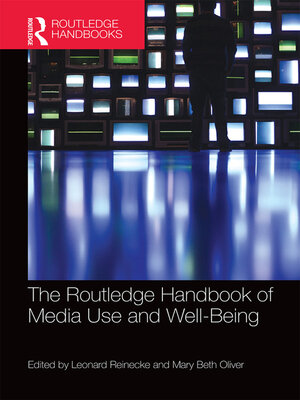The Routledge Handbook of Media Use and Well-Being
ebook ∣ International Perspectives on Theory and Research on Positive Media Effects · Routledge Handbooks in Communication Studies
By Leonard Reinecke

Sign up to save your library
With an OverDrive account, you can save your favorite libraries for at-a-glance information about availability. Find out more about OverDrive accounts.
Find this title in Libby, the library reading app by OverDrive.



Search for a digital library with this title
Title found at these libraries:
| Library Name | Distance |
|---|---|
| Loading... |
The Routledge Handbook of Media Use and Well-Being serves as the first international review of the current state of this fast-developing area of research. The volume provides a multifaceted perspective on the beneficial as well as the detrimental effects of media exposure on psychological health and well-being. As a "first-mover," it will define the field of media use and well-being and provide an essential resource for research and teaching in this area.
The volume is structured along four central considerations:
Bringing together the expertise of outstanding international scholars from multiple disciplines, including communication, media psychology, social psychology, clinical psychology, and media education, this handbook sheds new light on the role of media in influencing and affecting emotions.







